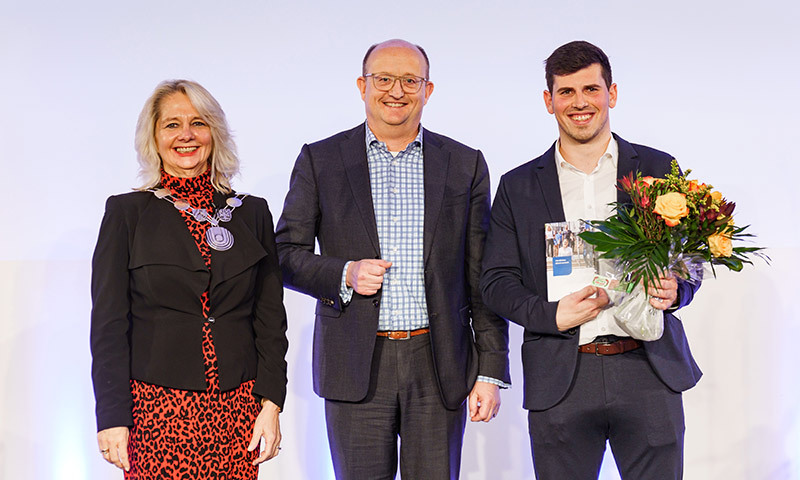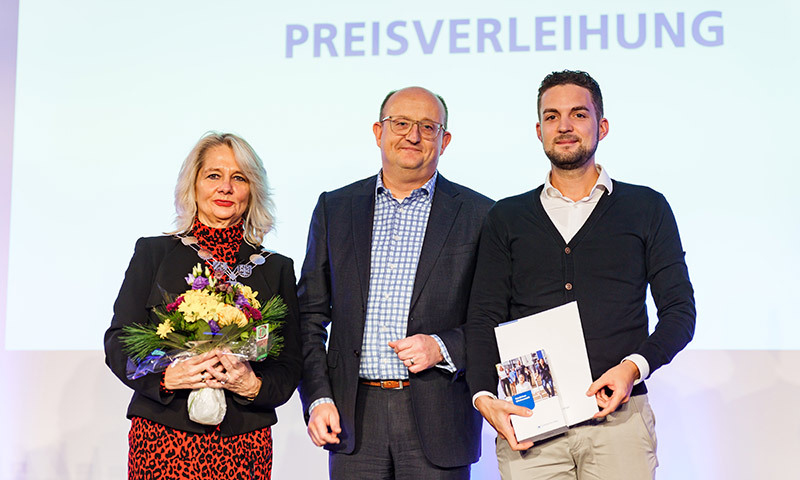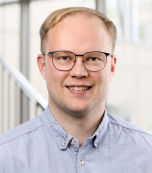Awards and Funding Programs
ENERVIE Energy Industry Prize
Since 2018, ENERVIE – Südwestfalen Energie und Wasser AG has recognized outstanding degree dissertations and doctoral theses at the FernUniversität that deal with issues in the energy industry.
In this context, the energy sector is seen as a wide-ranging spectrum of issues and research topics to which graduates and doctoral students from all faculties at the FernUniversität can contribute. The interdisciplinary range of research possibilities covers business-oriented and economic approaches, political, social and legal issues regarding energy economy and energy policy, and also technological (mathematics- and computer-related) components of energy efficiency, energy storage and energy supply security.
The prize is awarded annually. The presentation takes place during a ceremony at the FernUniversität’s Dies Academicus.
Call for Entries for the ENERVIE Prize (page in German only)
Recent recipients of the ENERVIE Prize
 Photo: Photo: Volker Wiciok
Photo: Photo: Volker Wiciok
 Photo: Photo: Volker Wiciok
Photo: Photo: Volker Wiciok
2022: The Future of Hydrogen and Electricity Prices
Thomas Voßgröne from Hamburg and Leo Lehr from Vienna were this years’ recipients of the ENERVIE Prize for their degree dissertations.
In the future, hydrogen is expected to play a major role in the mobility sector. A significant amount of research has already been carried out. But what about in the industrial sector? For instance in the basic chemicals indutry? FernUni student Thomas Voßgröne examined just this issue in his master’s dissertation. His work looks at the effects of using hydrogen to generate energy on ecological and social sustainability. His dissertation not only earned the top grade but also impressed the jurors of the ENERVIE Prize.
How are electricity prices likely to develop in the future? This is a question that interested Leo Lehr; so much so that he wrote his bachelor’s dissertation in computer science at the FernUniversität in Hagen on the subject. Major events, like the war in Ukraine, that can have an effect on electricity prices can, of course, not be predicted by computer algorithms – but they can react and adjust to them. This process can be facilitated by artificial intelligence and neural nets. Lehr compared various models and then mapped and implemented them in the Python programming language.
Learn more about the prize winners and their dissertations here. (page in German)
Contact Person for the ENERVIE Prize
 Photo: Photo: Hardy Welsch
Photo: Photo: Hardy Welsch
Dr. Lars Jensen-Lampiri
Email: lars.jensen-lampiri
Phone: +49 2331 987 4450

